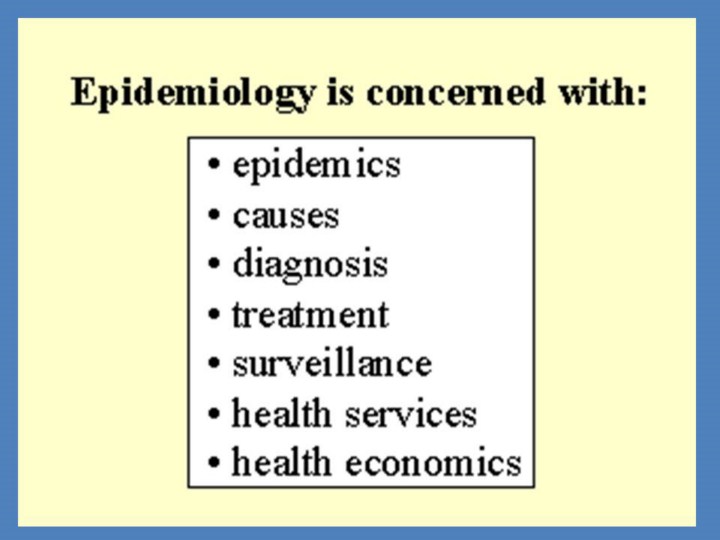| front |1 |2 |3 |4 |5 |6 |7 |8 |9 |10 |11 |12 |13 |14 |15 |16 |17 |18 |19 |20 |21 |review |
 |
Epidemiology is concerned with: measuring the frequency of diseases and events (mortality, births, morbidity incidence and prevalence, hospital stays, drug use, injuries, health behaviors); solving epidemics; looking for causes of disease and risk factors; evaluating new diagnostic tests; evaluating new treatments; surveillance for new diseases and changes in old ones; researching health services and their availability; and costing out alternative diagnostics, treatments or health service provisions. There are other lectures in this series on epidemics, diagnostic tests, health economics, health services research, some of the statistics used in epidemiologic research and the epidemiologic picture of some individual diseases or injuries. This lecture gives a simple overview of all the different kinds of studies epidemiologists use in looking for causes of diseases and injuries and for evaluating new treatments.
|